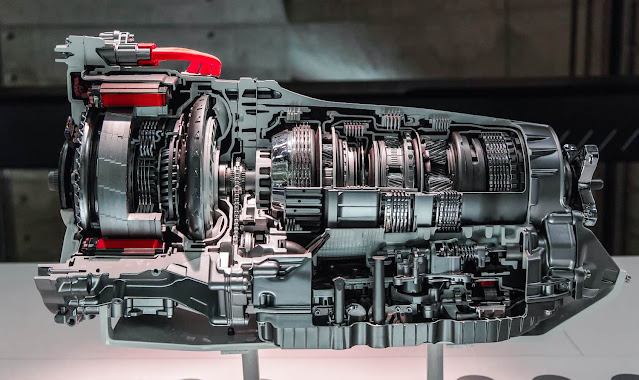Exploring Continuously Variable Transmission (CVT) in the Automotive Transmission Systems Market

Automotive Transmission Systems Market
Continuously Variable Transmission (CVT) is a groundbreaking technology in the automotive transmission systems market that offers a unique approach to power transfer between the engine and the wheels. Unlike traditional automatic or manual transmissions that use fixed gear ratios, CVT continuously and seamlessly adjusts the gear ratio to optimize engine performance and fuel efficiency. This innovation has gained popularity in recent years due to its numerous advantages, making it an attractive option for modern vehicles.
The fundamental principle of a CVT lies in its ability to vary the gear
ratio within a continuous range, enabling the engine to operate at its most
efficient speed under any driving condition. CVTs use a system of belts,
pulleys, or chain drives to provide an infinite number of gear ratios rather
than fixed steps, ensuring that the engine's RPM (revolutions per minute)
remains within an optimal range for fuel economy and performance.
According to Coherent Market Insights the Increasing demand for
all types of vehicle is driving the growth of the Automotive
Transmission System Market.
One of the key benefits of CVT is its smooth and uninterrupted power
delivery. Since there are no gear shifts, the transition between acceleration
and deceleration is seamless, offering a comfortable and enjoyable driving
experience. This characteristic also eliminates the traditional "shift
shock" often experienced in conventional transmissions, enhancing
passenger comfort.
CVT-equipped vehicles typically exhibit improved fuel efficiency compared
to traditional automatic transmissions. By continuously adjusting the gear
ratio to match the engine's power output with the driving conditions, CVTs
minimize energy losses and ensure that the engine operates at its most
efficient points. As a result, CVT-equipped vehicles often achieve better fuel
economy and reduced emissions, contributing to a more environmentally friendly
driving experience.
Furthermore, the flexibility of CVT design allows for a wide range of
applications in different types of vehicles. CVTs are commonly used in compact
cars, sedans, and hybrid vehicles, where their efficiency and smooth operation
align with the requirements of daily commuting and stop-and-go city driving.
Additionally, CVTs can be adapted for use in larger vehicles, such as SUVs and
crossovers, providing a balance between performance and fuel economy for a
diverse range of driving conditions.
However, despite its advantages, CVT technology does face certain
challenges. Some drivers may find the "rubber-band effect"
disconcerting, where the engine RPM may remain at a constant high level during
hard acceleration, making the engine sound disconnected from the vehicle's
speed. To address this, some manufacturers have introduced virtual gear steps
to simulate traditional gear shifts, mitigating the rubber-band effect and
making the driving experience more familiar to drivers accustomed to
conventional transmissions.
Another consideration with CVTs is their potential limitations in
high-performance and heavy-duty applications. The continuous variability may
not be ideal for handling high torque loads or for precise gear selection
required in certain driving conditions, such as towing heavy loads or
high-performance driving.
Continuously Variable Transmission (CVT) technology represents a
significant advancement in the automotive
transmission systems market.
With its smooth operation, fuel efficiency, and adaptability to various vehicle
types, CVT is carving its place in the automotive industry, especially in the
pursuit of more sustainable and efficient mobility solutions. As automakers
continue to refine and innovate CVT technology, it is likely to play an
increasingly prominent role in the future of transportation.



Comments
Post a Comment